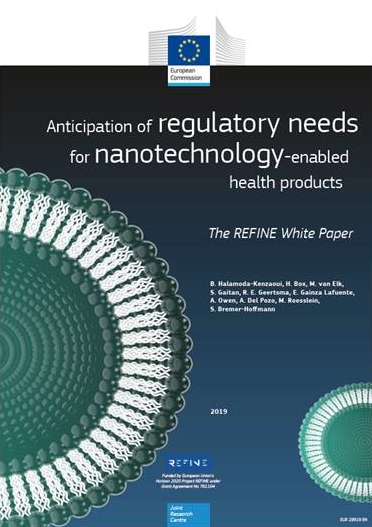|
DIVULGAÇÃO
Anticipation of regulatory needs for nanotechnology-enabled health products. A new white paper ("Anticipation of regulatory needs for nanotechnology-enabled health products"; pdf), published by the European Commission, summarizes the major challenges associated with the regulation of the nanotechnology-enabled health products.  Cover.
This white paper summarizes the major challenges associated with the regulation of the nano-enabled health products. Depending on their mode of action nano-enabled health products are regulated either as medicinal products or medical devices. However, due to the increased complexity of such products and their size-related properties the selection of the regulatory path can become challenging since the primary mode of action might be difficult to determine. Due to the fast progress in the field and the lack of robust datasets, only initial guidance on regulatory information needs is currently available and the question remains whether these identified requirements are sufficient for a reliable characterisation of nano-enabled products. In relation to the need for additional information on the quality, safety and efficacy standardised methods have to be available. However, many conventional methods might not be suitable or reliable for nanomaterial testing due to the interference of nanomaterial with assays components. New state-of-art methods, instruments, approaches or tools have not yet sufficiently proven their reliability and relevance for the given purpose. As patents are expiring generic versions of the innovator products will require access to the market. Since the physicochemical characteristics can be very complex and depend on the manufacturing process, pharmacokinetic assessment might not be sufficient and more guidance is needed on how the bioequivalence can be demonstrated. For the nano-enabled health products classified as medical devices, the European Definition on nanomaterials will apply, determining its further classification and regulatory requirements. Yet, the implementation of the definition and the necessity to determine the exposure to nanomaterials may pose additional challenges. The regulatory challenges highlighted in this white paper should guide the research projects and the involved communities willing to advance the regulatory science in the area of nanomedicine. European Union. Accessed: Jan 02, 2020. |
||||||||||||||||||||||||